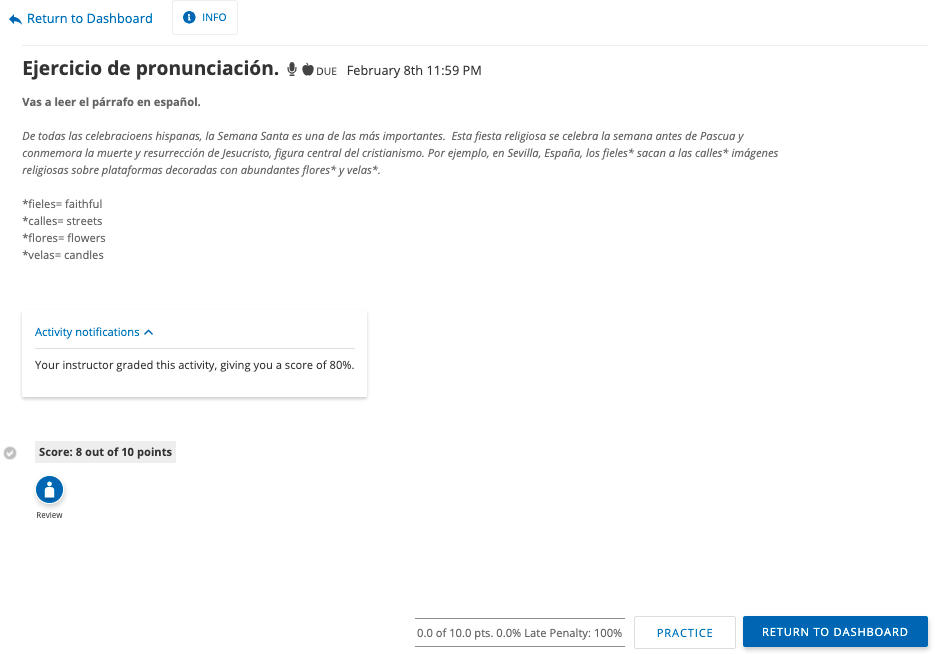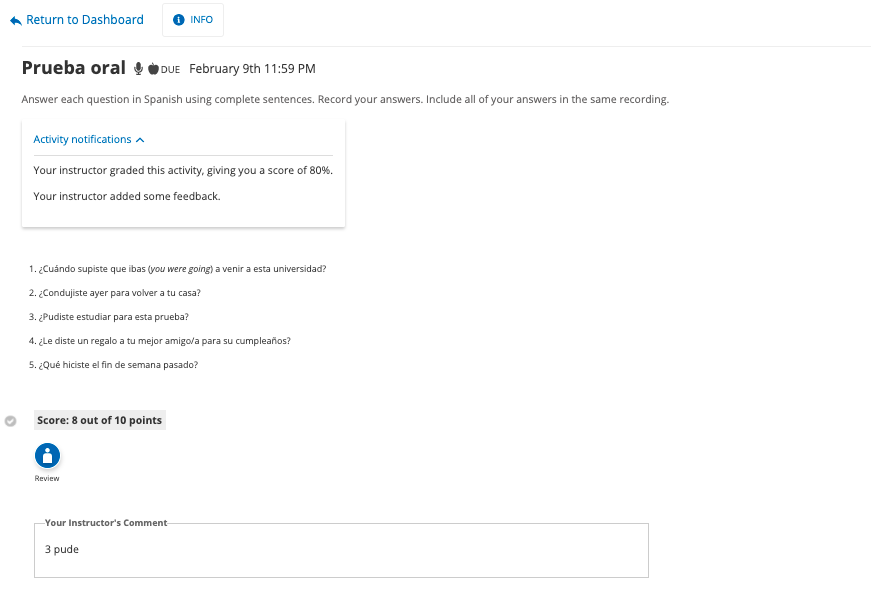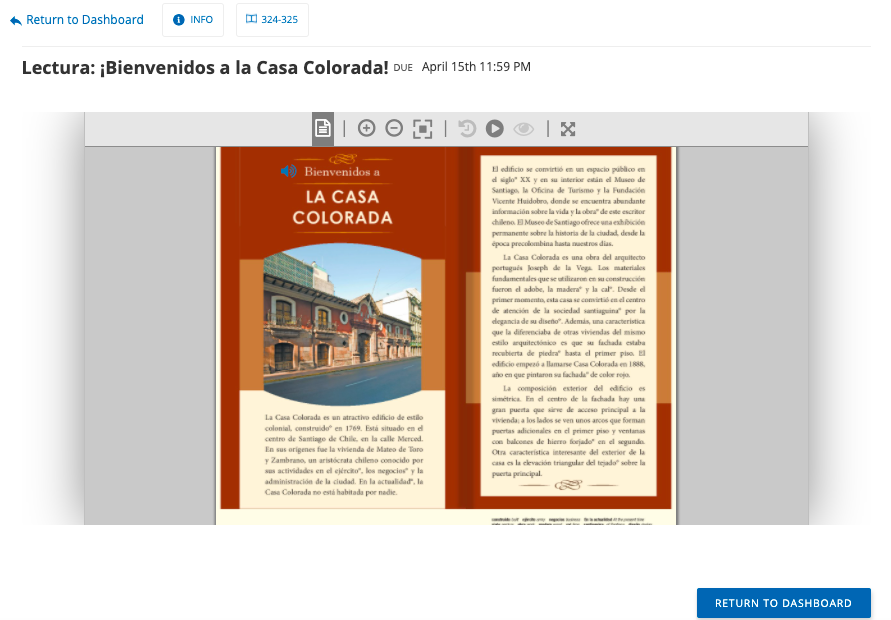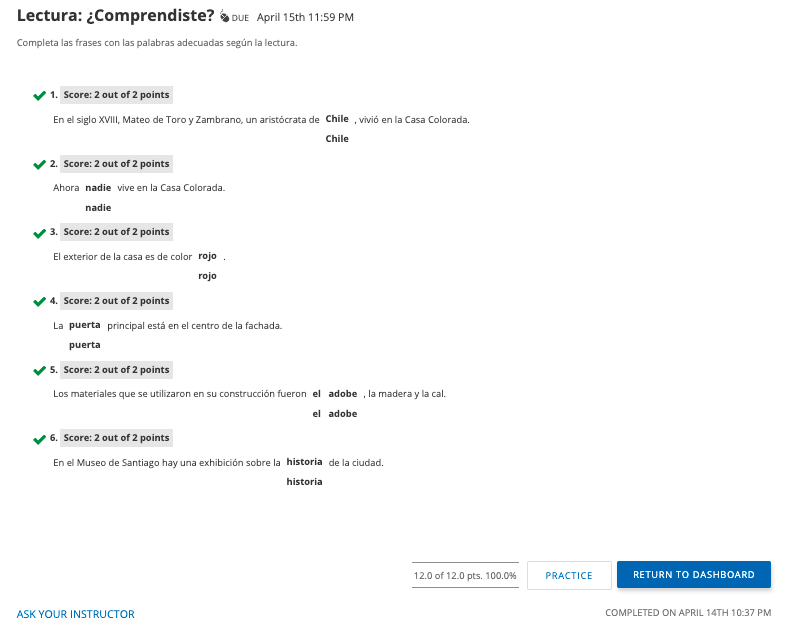Exploring Culture
The best products and practices from class that assisted in my learning of other cultures, specifically the cultures in various Spanish speaking countries, was Flash Cultura and the videos that my Professor would show in class like the video about the Tomatina Festival in Spain.
I had always thought that in Spain they all had a joint culture, but I realized in this class that in Spain there were many different cultures and traditions. For example, in northern Spain they participate in the Tomatina Festival, but it is not a festival that you would see in Southern Spain. I also learned that in most Spanish speaking countries they celebrate the saints by having large parades; before I thought that was only a tradition in Spain. It made me compare it to the United States and how that although every state is part of the country, each state has their own culture and traditions that won’t normally be found in other states. I also noticed that depending on where the person speaking was from, they had a very distinct accent and even had different words for things than other countries. For example, in Argentina platos means money, but in other Spanish speaking countries money is dinero and platos means plates. Becoming aware of these cultural differences really opened my eyes to how one group can have so many different traditions, cultures, and meaning of words.
Engaging in Communities
Interacting in your local community as well as the global community is so important because is gives you new and more knowledge and allows you to gain new and different perspectives on issues. It can also help you become knowledgable about issues going on around the world and in your own community that normally you wouldn’t be aware of.
Interpersonal Communication
I did two Talkabroad assignments this semester; one in March about celebrations and holidays and the other one in April about social media and domestic chores. I did my Talkabroad with Claudia who is from Mexico.
Between my first and second Talkabroad assignment I was able to learn new tenses for various Spanish verbs that I was able to use in my conversations. Since I learned those things I was also able to understand my partner when she used those phrases and tenses and I was able to respond appropriately. My main difficulty in speaking Spanish is forming coherent sentences. In order to combat that, I decided to speak in shorter sentences instead of talking too much since my vocabulary is limited. I do better at listening to Spanish rather than speaking it, so it was difficult to understand what my partner was saying, but not being able to respond how I would like. I would study more and practice forming sentences so I can have better and more coherent conversations with my partner instead of having to stop my sentence mid way because I don’t know the words to complete my sentence.
The audios for both of my Talkabroad interviews are available upon request!
workbook2Presentational Speaking
On the VHL Super-site, we were assigned oral assignments to complete. One of those assignments from Chapter 9 was to read a small paragraph in Spanish and we were graded on our pronunciation of the words and another oral assignment was a quiz and we had to respond to the questions in complete sentences and use the proper tense of the verb; I received an 80% on both assignments.
My biggest difficulty with speaking Spanish is my pronunciation of words. To combat this challenge I would read the sentences aloud and when I felt confident enough I would record my answer to ensure that I got the best grade for my attempt. Another challenge I have is knowing which tense of the verb I need to use, so I use clues from the questions to figure it out.


Presentational Writing
In class we had to write a composition based on a prompt. The composition had to be 15 sentences using the preterite and imperfect tense. I chose the prompt about an event I had with a car.
Writing about the event was the easiest part because it is something that happened to me and I remember it well. The most difficult part was trying to figure out whether or not I needed to use preterite tense or the imperfect tense. In order to figure that out I had to read through the textbook and decide which tense was most appropriate.
composition-2Interpretive Listening
On the VHL Super-site we had various assignments and some of them included an assignment where we had to listen to a short audio clip and then answer questions about what was said.
We had to listen to various audios about various situations and about various people. This image is from one of the assignments on VHL where I had to listen to an audio and then I had to answer questions based on the audio. This audio in particular included vocabulary from Chapter 12.

Interpretive Reading
Other assignments on the VHL Super-site were reading comprehension exercises. In this particular exercise I had to read an article in Spanish about the La Casa Colorada in Chile. After reading the article I then had to answer questions about the article.

